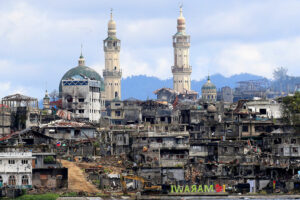THE government is soliciting foreign and private sector assistance to support its peace and security reforms, Budget Secretary Amenah F. Pangandaman said.
“A couple of things we’d like to (promote) first is financing from international development and multilateral institutions. Studies show that most of the projects that we get from our development partners don’t (address issues concerning) women, peace, and security in their portfolios,” Ms. Pangandaman said in a briefing on Wednesday.
The government is also seeking more support from the private sector to fund reforms that will benefit women, peace and security, she added.
“More than anything else, we need the cooperation of the private sector and of the international community to help us fund these projects,” she said.
Ms. Pangandaman will make the push for financing support from foreign institutions at the International Conference on Women, Peace and Security on Oct. 28-30.
The conference will help the Philippines investigate other countries’ best practices and reassess the components of the National Action Plan dealing with women, peace, and security reforms.
The Philippines was the first country to adopt a National Action Plan on Women, Peace and Security, which seeks to “ensure the protection of women’s human rights and prevention of violation of these rights in armed conflict and post-conflict situations.”
It also aims to strengthen women’s participation in peace building and conflict prevention.
Meanwhile, Ms. Pangandaman said the Budget department is working on the speedy release of the compensation for the victims of the 2017 Marawi siege.
She said the distribution of the compensation has been “a bit slow,” citing the large number of claimants.
“We’re still finalizing the total amount of compensation that we need to give,” Ms. Pangandaman said.
In September, the Budget department approved the release of P1 billion to cover mainly structural damage and death claims from the siege.
“The money is still there. We have been meeting with them quite very early so we can expedite (the release of the compensation),” Ms. Pangandaman said.
She added that the budget for the province of Sulu will still be included in the Bagsamoro Autonomous Region in Muslim Mindanao’s (BARMM) proposed budget for next year.
The Supreme Court (SC) recently ruled that Sulu is not part of the BARMM.
“We’re still waiting for the finality of the Supreme Court decision. It’s executory but it is not yet final,” Ms. Pangandaman said.
In a Sept. 9 decision, the SC ruled that Sulu rejected the Bangsamoro Organic Law in the 2019 plebiscite. — Beatriz Marie D. Cruz

